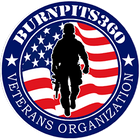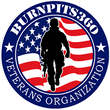VA to Add Diagnostic Code For Constrictive Bronchiolitis

For the past two years, Burn Pits 360 has been relentlessly advocating for the VA to recognize Constrictive Bronchiolitis (CB) with its own diagnostic code, ensuring veterans suffering from this devastating condition receive proper care and benefits. Today, we are proud to announce that this hard-fought battle has been won—CB now has a specific diagnostic code within the VA system, a crucial step towards streamlining care for those exposed to toxic burn pits. This victory is a testament to the power of advocacy and the unwavering dedication to our veterans' health.
From The Department of Veterans Affairs:
The Department of Veterans Affairs (VA) is fully committed to providing every Veteran with constrictive bronchiolitis (CB) – and their survivors – with the health care and benefits that they’ve earned for their service to our Nation.
When President Biden signed The Sergeant First Class Heath Robinson Honoring our Promise to Address Comprehensive Toxics (PACT) into law, VA made CB a presumptive condition for Veterans who were exposed to burn pits and other toxins while serving our country – a step that lowered the burden of proof for Veterans who live with CB to receive monthly disability compensation benefits. This year, we also made all Veterans who were exposed to toxins while serving our country – including Veterans who developed CB as a result of exposure to burn pits or other hazards – eligible for VA health care up to 8 years earlier than called for by the PACT Act.
Tomorrow, VA will publish a supplemental notice of proposed rulemaking to further support these Veterans and their families. Specifically, this notice will update VA’s Respiratory, Ear, Nose, and Throat proposed rule to:
- Add a specific diagnostic code for CB in the VA Schedule for Rating Disabilities (VASRD). This proposed step would enable VA to better track claims and decision outcomes associated with CB, allowing us to better understand – and ultimately help – Veterans who live with this condition. (VA currently awards CB benefits using diagnostic codes for similar conditions, as we do for many conditions that don’t have specific codes).
- Use two additional criteria to evaluate Veterans for constrictive bronchiolitis: maximum oxygen consumption (VO2 Max) and metabolic equivalents (METs). These criteria, which would be added for all respiratory conditions under the original proposed rule, would now apply to CB. Adding these criteria would make it easier for Veterans to obtain an accurate disability rating for their service-connected constrictive bronchiolitis.
These steps are a part of our comprehensive efforts to make sure that all those we serve – including Veterans who live with CB and their survivors – get the benefits they deserve. Since the PACT Act was signed into law, we have expedited presumptive benefits and health care eligibility by several years, hired thousands of claims processors to process Veteran claims as quickly as possible, and launched the most aggressive outreach campaign in VA history.
As a result of these efforts, VA has delivered more than $7.3 billion in earned benefits to more than 1.2 million Veterans and their survivors under the PACT Act. Additionally, nearly 740,000 Veterans have enrolled in VA health care since enactment of the PACT Act — a 33% increase over the previous two-year period. And the grant rate for Veteran benefits claims under the PACT Act is 75%, far higher than pre-PACT levels.
Altogether, we are now delivering more care and more benefits to more Veterans than ever before – but we won’t rest until every Veteran and survivor gets the care and benefits they deserve. That’s why today’s proposed steps are so important, and that’s why we will continue to do everything in our power to support Veterans who live with CB and their survivors.
Thank you for your continued support of our mission.







